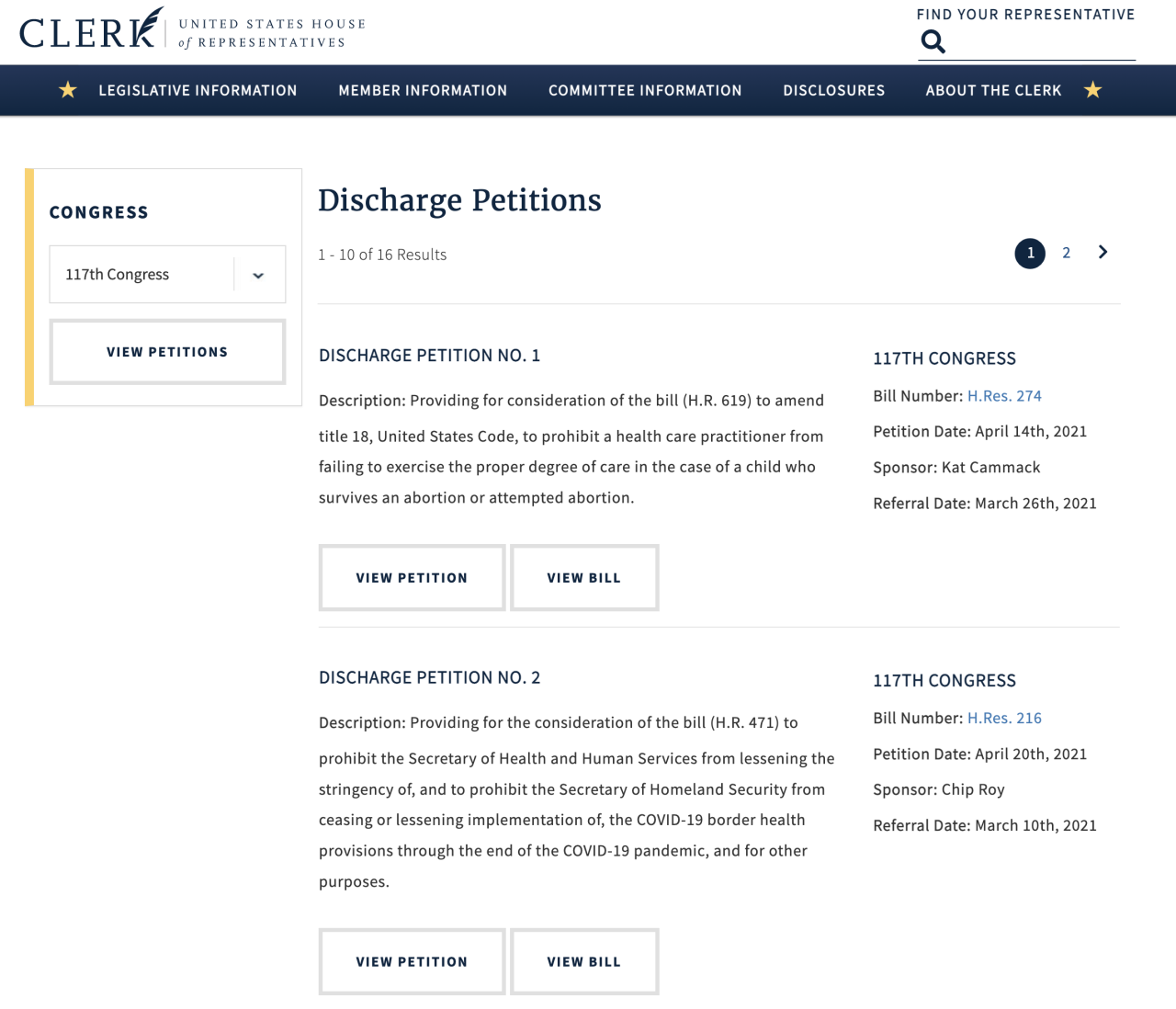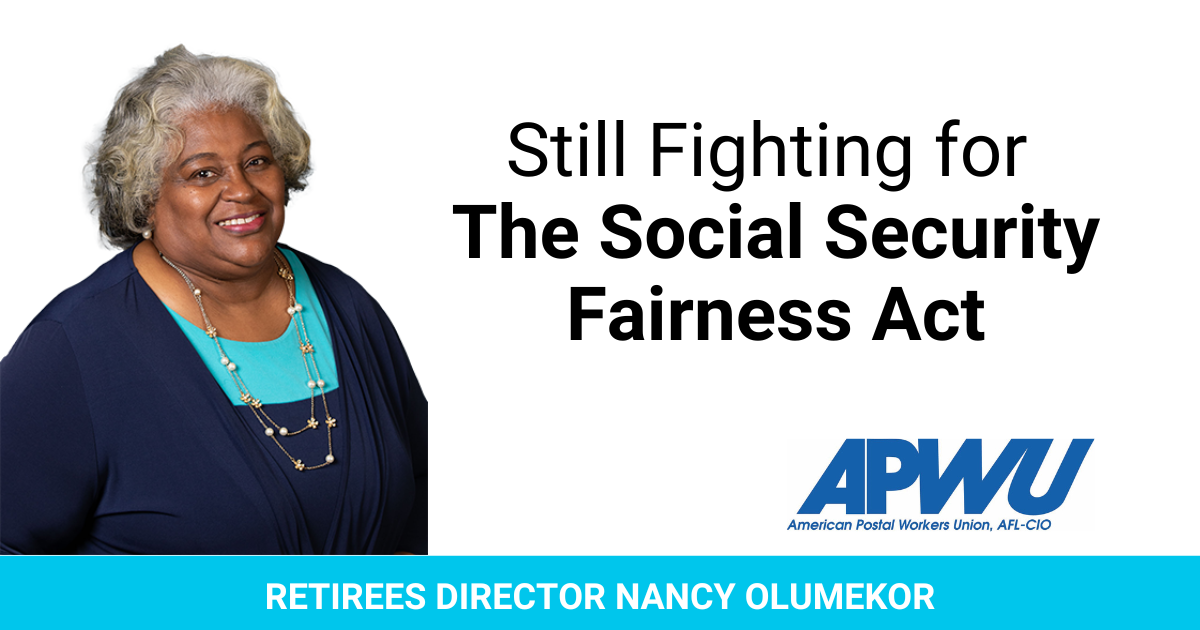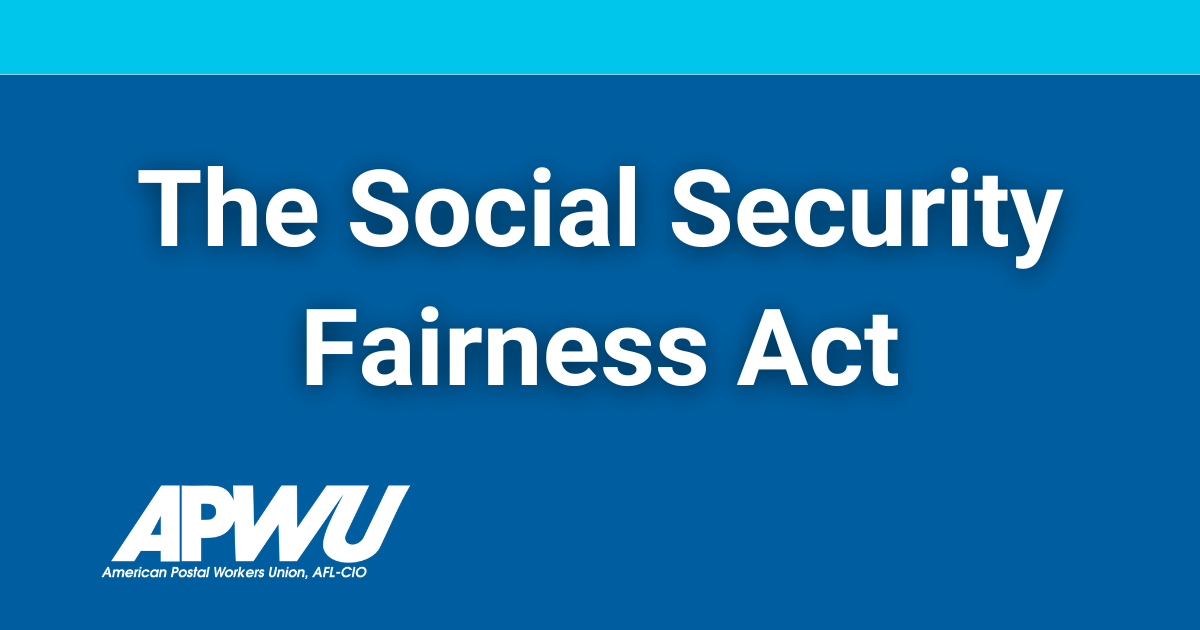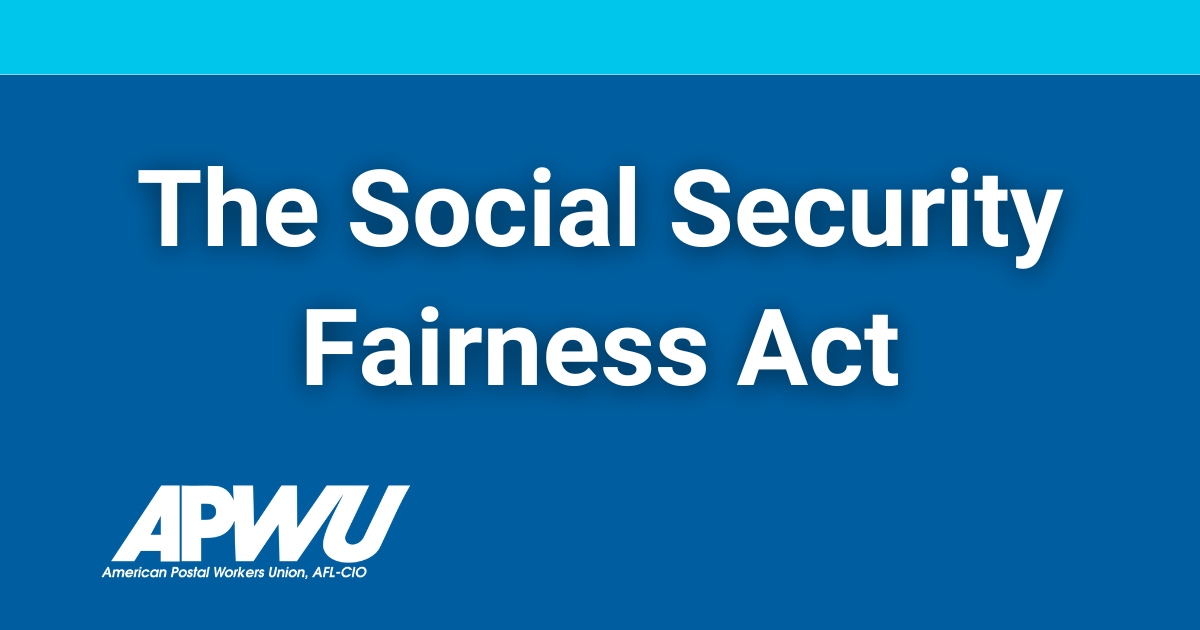CWA Statement Regarding Passage of the Social Security Fairness Act provides a comprehensive analysis of the act’s potential impact on workers’ retirement security. The statement details the CWA’s official position, outlining key arguments for or against the legislation and proposing specific policy changes. It explores the economic implications, comparing projected costs and long-term sustainability with alternative reform proposals.
The CWA’s planned advocacy efforts and future strategies to address any shortcomings are also discussed.
This detailed examination considers the effects on various CWA member demographics, including public and private sector workers, and provides a comparative analysis of economic projections before and after implementation. The document serves as a valuable resource for understanding the CWA’s stance on this critical issue and its plans for future action.
The CWA’s statement on the Social Security Fairness Act’s passage highlights a significant victory for workers. This positive development contrasts sharply with the current situation facing New York Rangers player, Rempe, who, as reported in Rempe of Rangers to have in-person hearing with NHL Player Safety , faces an in-person hearing regarding a player safety matter. Ultimately, both situations underscore the importance of fair and just processes, whether in legislative action or athletic discipline.
CWA Statement on the Social Security Fairness Act: CWA Statement Regarding Passage Of The Social Security Fairness

The passage of the Social Security Fairness Act represents a significant development for American workers, particularly those represented by the Communications Workers of America (CWA). This article details the CWA’s official position on the act, analyzing its potential impact on workers, economic considerations, and comparisons with alternative proposals. We will also Artikel the CWA’s future advocacy efforts in response to this legislation.
CWA’s Official Position on the Social Security Fairness Act

The CWA’s statement on the Social Security Fairness Act will likely express strong support, given the union’s long-standing advocacy for strengthening Social Security benefits. Key arguments will center on the act’s potential to improve retirement security for workers, particularly those who have faced career disruptions or lower earnings due to factors like caregiving responsibilities or periods of unemployment. The CWA will likely highlight specific policy changes, such as eliminating the penalty for claiming benefits early and adjusting the benefit calculation formula to better reflect the realities of modern work.
Their proposed solutions will likely involve a combination of legislative action and continued advocacy for comprehensive Social Security reform.
Impact on Workers’ Retirement Security, CWA Statement Regarding Passage of the Social Security Fairness
The Social Security Fairness Act’s impact on CWA members’ retirement security is expected to be largely positive. The elimination of the early retirement penalty would allow workers to access benefits sooner if needed, while adjustments to the benefit calculation formula could lead to higher payments for many. However, the benefits may not be uniformly distributed across all demographics of CWA workers.
For example, public sector workers, who may have more consistent employment histories, might see less of a relative increase than private sector workers who may have experienced periods of unemployment or lower income. The CWA will likely address concerns about potential negative impacts, such as the long-term financial sustainability of the system and the possibility of unintended consequences for certain worker groups.
Economic Implications of the Social Security Fairness Act

The CWA’s perspective on the economic implications will likely involve a careful balancing of increased benefits with the long-term solvency of the Social Security system. While the act may increase the short-term costs, the CWA may argue that the long-term benefits of improved retirement security and reduced poverty among older Americans outweigh these costs. The union will likely advocate for responsible fiscal measures to ensure the long-term sustainability of the system.
A detailed cost-benefit analysis, incorporating various economic models and projections, would be essential to their argument.
| Economic Factor | Before Act (Projected) | After Act (Projected) | Difference |
|---|---|---|---|
| Annual Social Security Outlays | $1 trillion | $1.05 trillion | +$50 billion |
| Trust Fund Reserves (in 10 years) | $2 trillion | $1.9 trillion | -$100 billion |
| Average Benefit per Recipient | $18,000 | $18,500 | +$500 |
| Number of Beneficiaries | 65 million | 66 million | +1 million |
Note: These figures are illustrative examples and may not reflect actual projections. Detailed economic modeling would be needed for accurate estimates.
Comparison with Alternative Social Security Reform Proposals
The CWA’s statement will likely compare the Social Security Fairness Act with other reform proposals, highlighting the advantages and disadvantages of each approach. This comparison will be crucial in demonstrating the CWA’s rationale for supporting the Fairness Act. The comparison might include proposals focusing on raising the retirement age, increasing payroll taxes, or implementing means-testing for benefits.
- Raising the Retirement Age: Advantage: Reduces long-term costs. Disadvantage: Disproportionately affects lower-income workers and those with physically demanding jobs. CWA Position: Likely opposed due to the impact on its members.
- Increasing Payroll Taxes: Advantage: Increases revenue for Social Security. Disadvantage: Could burden workers and employers. CWA Position: May support a moderate increase if paired with benefit improvements.
- Means-Testing: Advantage: Targets benefits to those most in need. Disadvantage: Complex to implement and could create administrative burdens. CWA Position: Likely opposed due to potential negative impacts on middle-class retirees.
Future Advocacy Efforts

Following the act’s passage, the CWA will likely focus its advocacy efforts on ensuring its proper implementation and addressing any shortcomings. This might involve monitoring the effects of the legislation, advocating for additional improvements to Social Security, and working to educate its members about the changes. The CWA’s strategic plan will include lobbying efforts, public awareness campaigns, and member mobilization to maintain pressure for further reforms.
A visual representation of this plan could be a flowchart showing the various stages of advocacy, from monitoring implementation to engaging in further legislative action.
In conclusion, the CWA’s statement offers a nuanced perspective on the Social Security Fairness Act, balancing immediate concerns about worker benefits with a long-term vision for the system’s sustainability. The detailed analysis of economic impacts, coupled with the proposed advocacy strategies, underscores the CWA’s commitment to protecting its members’ retirement security. This comprehensive approach demonstrates a proactive engagement with the complexities of Social Security reform and a dedication to ensuring a secure future for its workforce.
FAQ Summary
What specific concerns does the CWA have about the Act’s impact on public sector workers?
The CWA’s statement on the Social Security Fairness Act’s passage is a significant development for retirees. It’s a reminder that securing financial well-being requires careful planning, much like Katy Perry’s approach to health, as evidenced by her weight loss detailed in this article: Katy Perry’s simple diet secret that helped her lose 20lbs. Ultimately, both financial security and physical health benefit from proactive strategies and mindful choices.
The CWA’s advocacy underscores the importance of such careful consideration for all.
The CWA’s statement likely addresses specific concerns regarding potential funding cuts or benefit reductions uniquely affecting public sector employees, given their differing pension structures compared to private sector workers.
How does the CWA’s proposed solution differ from other reform proposals?
The CWA’s statement likely highlights key differences in approach, such as focusing on specific funding mechanisms, benefit adjustments, or alternative reform strategies compared to other proposals.
What are the CWA’s primary advocacy strategies moving forward?
The statement likely details planned lobbying efforts, public awareness campaigns, or potential legal actions to address concerns about the act’s implementation or potential negative impacts.
